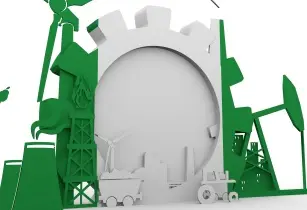While environmental, social, and governance (ESG) implies decarbonisation and the use of renewable energy for world players, Africa has a slightly different way of looking at it
A nation yet to experience equal access to basic energy needs, ESG for it means exploitation of its vast hydrocarbon resources to address energy security and socioeconomic development goals, besides environmental sustainability.
“By only focusing on decarbonisation, we are missing the meaning, importance and benefits of ESG in maximising energy developments, ensuring energy security and in transferring the benefits associated with the exploitation of resources to the local communities and economies. Today, we are seeing global investors just signing deals when they see that it is renewables and stepping back when it is hydrocarbons, yet even in massive renewables developments ESG is not being prioritised,” said Jorian Hamster, senior associate, DLA Piper, at a panel organised by the African Energy Week (AEW) 2022.
Suggesting sustainable alternatives to this perspective of ESG, Julien Perez, VP strategy and policy, OGCI, said, “We should continue investing in fossil fuels and at the same time use new technologies such as drones, data analytics and satellites to track the environmental impacts of these projects.”
While speaking of the Trans-Sahara Gas Pipeline, Ibrahim Mamane, CEO, SONIDEP, said, “Niger is a desert and our consumption is 80% biomass – this means that trees that are cut in a country that is three quarters desert has impacts on agriculture and causes the deserts to progress. By using gas, we will stop the cutting of the wood, and it will enable us to render our fields more fertile and prevent shortages that will reoccur every three of four years. So, this pipeline will be an immeasurable contribution to us.”
Rather than feeling cornered from international divestment in the African oil and gas sector, the nation is looking at ways to carve a niche for itself as national oil companies (NOCs) are scaling up asset acquisition.
“We are faced with the possibility of being locked out of financing, but we still need to develop. We need to think about how to channel African funds into African projects. We have coined the term ‘African content’ and we want to see African countries adopting this. We want to see Nigerian companies operating in Namibia, creating skills and transfer programmes,” said Ejike Egbuagu, CEO/founder, Moneda Invest Africa.
Kola Karim, CEO, Shoreline Energy, said, “We started as an independent taking advantage of the divestments of international oil companies in Nigeria. We have lived through four cycles of high oil prices and low prices. This has given us the supportive balance sheet to handle what is happening. If you see what people are doing in the industry, global majors are divesting assets, and this creates opportunities for independents with balance sheets to take them over.”
Despite international oil company divestment from hydrocarbons, a suite of African independents are driving frontier exploration. The nation is rich in oil and gas resources, but investment is the only major obstacle keeping it from utilising them to their full potential. Jeremy Asher, CEO, Tower Resources, however, finds hope in the fact that ‘African banks are giving more interest in the area’.
There can be no one solution fits all to Africa’s energy transition dilemma. “Our objective is simple: with South Sudan’s 90% of the budget coming from oil, we want to exploit oil to build hospitals and ensure energy and food security, while building infrastructure that will enable decarbonisation. From all of us African ministers, nobody is saying we don’t want the transition; we want it to be just,” said Puot Kang Chol, said the Minister of Petroleum of South Sudan.
One of the major point of discussion was Africa’s LNG. “If you want to be green while continuing to provide baseload, you will need to invest in LNG,” said Karl Staubo, CEO of Golar LNG, at one of the sessions at the Africa Energy Week 2022, which witnessed debates and discussions on hot topics such as leveraging regional pipeline systems to improve energy security, ensuring just transition, growth strategies and risk mitigation in the nation’s unexplored basins, and highlighting local content and asset transfer to name a few.








